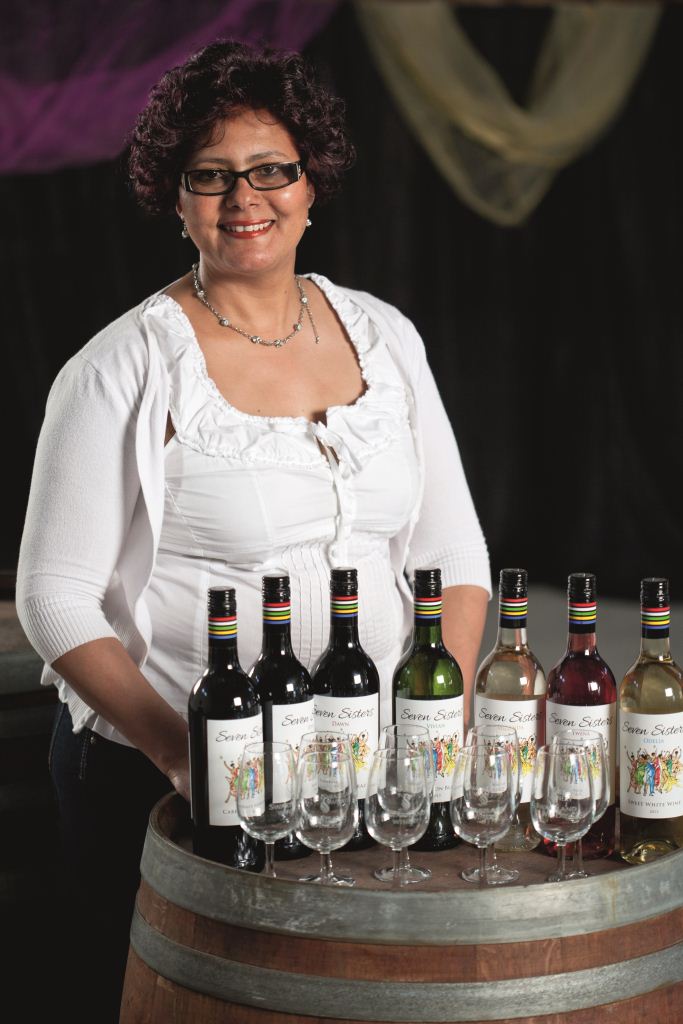When Vivian Kleynhans grew up in the remote fishing village of Paternoster on South Africa’s West Coast, not in her wildest dreams did she think that one day she would sign a major export deal with the world’s largest discounter, Walmart.
Last year, that happened.
Kleynhans, 49, shipped four 40-foot containers of her Seven Sisters wines to the United States (US), where Walmart has been selling them in more than 500 stores countrywide since September.
“We are hoping to ship this amount every three months from now on, if sales go well,” says Kleynhans.
Although she’s not allowed to disclose the size of the contract, Kleynhans is certain of one thing: “This deal will change our lives.”
Even before Walmart discovered the Seven Sisters wine brand, Kleynhans had made a success of the label that she launched in 2005 from scratch.
After growing up with six sisters and a brother in a poor village, survival was difficult. Straight after graduating from high school, Kleynhans had to take a secretarial job at a construction company to help her family financially. When she didn’t get a promotion a few years later, she started working for a real estate agent, then moved into human resources and soon thereafter joined an insurance company.
She slowly worked her way up, gaining business experience with every new employment she entered.

“Throughout my career, I was working towards owning my own business that could provide a legacy for my family. Eventually, I felt ready to set up my own company,” says Kleynhans.
She launched African Roots Wine Brands in 2005 after the South African government set up a trust to help formerly disadvantaged people enter the wine industry. Her idea was to sell wines that would represent her family and her cultural history.
For a year, Kleynhans searched for the right wine farm to partner with. She wanted a farm that could provide her with seven different wine styles—one for her and each of her six sisters. She eventually teamed up with Swartland, a winery located in the region where she grew up.
“My vision was to build a company that my sisters could be part of. Because we are seven, I wanted to partner with a winery that could provide us with a wide range of styles,” she says.
Each sister personally helped create their own varietal. The result: a Bukettraube Odelia, Rosé Twena, Moscato Yolanda, Sauvignon Blanc Vivian, Pinotage Dawn, Merlot June and Cabernet Sauvignon Carol.
That same year, Kleynhans took the Seven Sisters range to the Soweto Wine Festival near Johannesburg. It was the first trade fair she had ever attended. As luck would have it, she met an American importer, Selena Cuffe of Heritage Link Brands, who invited her to present her wines in the US.
It was a tough start. Without an advertising budget to speak of, Kleynhans had to market her wines by doing road shows across the US, garnering customers one by one. It was a tedious strategy, but it paid off over time.
The first container of Seven Sister wines left South Africa in 2007. A year later, Kleynhans shipped four containers. In the third year, she sent nine. By early 2013, African Roots Wine Brands was selling 110,000 bottles a year in 42 states to supermarkets, wine stores, specialty stores and discounters. Buyers included major chain stores, such as Whole Foods, Super Value and Disneyworld.
“Over the years, we managed to become an established brand in the US. Our drive is to grow a household brand,” says Kleynhans.
She also landed a four-year contract with American Airlines, which served the Vivian Sauvignon Blanc on all of its flights.
“It was one of the first big business deals we signed. It helped us a lot to stay in the game,” she says.
Ironically, it took Kleynhans longer to enter the wine market in her home country.
“South Africa only woke up after we made a name for ourselves in the US. We’ve been trying for some years to get into the South African market. But it’s so saturated, we struggled to gain entry,” says Kleynhans.
When Walmart bought a 52% stake in South African chain Massmart in mid-2011 for a whopping $1.59 billion, South African antitrust authorities, concerned that the deal would lead to job losses and product domination, obliged the retail giant to set up a $20 million-fund to support small suppliers.
It was through this fund that Kleynhans eventually managed to place Seven Sisters on Massmart’s Makro shelves in South Africa.
A second Walmart development fund, this time aimed at providing $20 billion to small, women-owned suppliers, represented the jackpot. Kleynhans had been supplying Seven Sisters to American retail warehouse chain Sam’s Club, one of Walmart’s sister companies, for a while.
“Walmart was looking for companies all over the world to find suppliers that met the criteria for the fund. The buyer from Sam’s Club hooked us up,” says Kleynhans.
From there, the deal snowballed. In December 2012, Walmart’s global sourcing manager visited Kleynhans at the nine-hectare farm she had just bought in Stellenbosch, one of South Africa’s top wine regions. He invited her to spend a day at Walmart’s headquarters in Arkansas in February last year. A month later, Kleynhans was invited to Walmart’s global supply summit. Shortly thereafter, she sealed the deal.
For Kleynhans, this is just the beginning. She recently planted her own cultivars—a Shiraz and a Chardonnay—which are tended by her brother, John Brutus, a viticulturist. The first bottles of the new label, to be named after her brother, will be sold from a boutique cellar on the estate by 2015.
Kleynhans is also opening a restaurant on the farm. Like all her ventures, the eatery will stay in the family and be managed by all seven sisters.
“It will be run like my mother’s dining room.” FL
